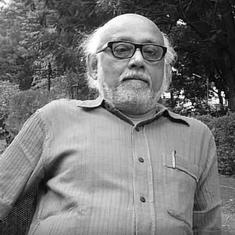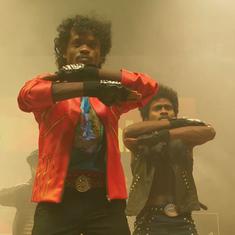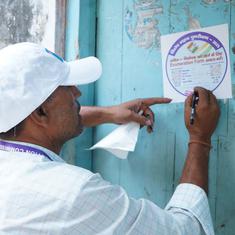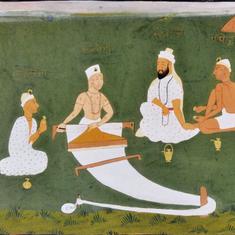Man moves Supreme Court seeking late father’s biometric details from Aadhaar authority
The petitioner argued that the data would not be of any use to the Unique Identification Authority of India, but could be misused in the wrong hands.

A man on Thursday filed a petition in the Supreme Court, asking for the Aadhaar authority to return the biometric details of his father who died in December, PTI reported.
Santosh Min B, a human resources manager from Bengaluru, said his father’s biometric details would now be of no use to the Unique Identification Authority of India, but could be misused in the wrong hands. To avoid such a possibility, he requested the court to hand over his father’s “biometrics in printed form” so he could “keep it for posterity”.
“By imposing the Aadhaar [scheme], the government of the day wants to keep track of every single paise earned by citizens, and on other hand, political parties can receive funds anonymously through electoral bonds,” the petitioner said, comparing the Aadhaar programme to an “undeclared emergency”.
Santosh Min B also said that his father, N Bhanu Vikaraman, had left behind an unfinished letter for Prime Minister Narendra Modi. In the letter, he said, his father had written about how and the sick faced harassment while submitting their life certificate form at provident fund offices countrywide. The petitioner linked his father’s death to not being able to file his life certificate at a provident fund office in Bengaluru as the system could not authenticate his identity because of his faded fingerprints and a cataract surgery.
A Constitution bench of Chief Justice Dipak Misra and justices AK Sikri, AM Khanwilkar, DY Chandrachud and Ashok Bhushan scheduled the next hearing in the matter for March 20. The five-judge bench is hearing a clutch of petitions challenging the validity of the Aadhaar scheme and the law that enables it.
On Thursday, senior advocate KV Vishwanathan, who represents one of the petitioners in the case, argued that the Aadhaar Act does not include any “procedural safeguards” to “govern the actions of private entities” and also neglects to mention “remedies” in cases were Aadhaar details could not be authenticated because of system failures. The lawyer was referring to cases where citizens have been denied services, such as rations, because of glitches in the Aadhaar network.
“Such mandatory authentication has caused, and continues to cause, exclusion of the most marginalised sections of society,” he asserted.
These arguments come two days after the Supreme Court on Tuesday indefinitely extended the March 31 deadline to link Aadhaar with bank accounts and mobile numbers, but kept the deadline to link the 12-digit number to avail subsidies and benefits unchanged. The bench said there will be no deadline to mandatorily link Aadhaar until it pronounces its judgment on the petitions it is currently hearing.









